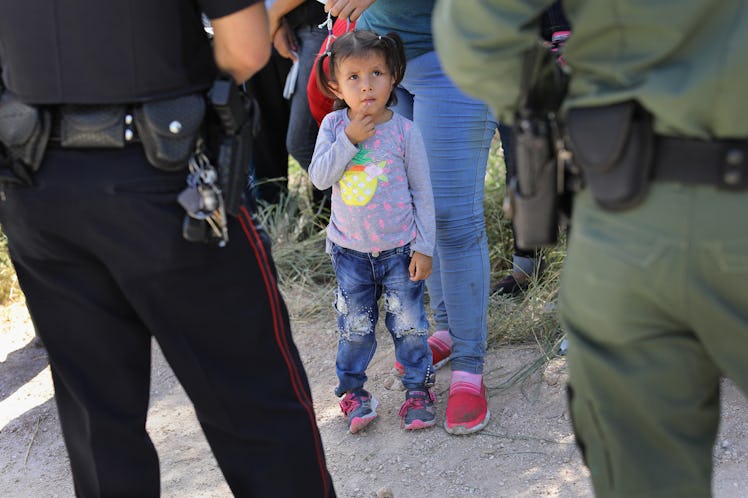
The Trump Administration's Latest Update On Family Separations At The Border Is Troubling
Family separations at the United States southern border have been an ongoing conversation for quite some time now. So it might not be surprising that there are new reports on the subject, which say that many more migrant children may have been separated from their parents than originally thought. How many families were separated at the border, you ask? Well, the Trump administration is reportedly "unsure," so don't look for answers there. The White House and Department of Health and Human Services did not immediately respond to Elite Daily's request for additional comment.
The news comes in the wake of a Jan. 17 report by government inspectors saying that thousands more migrant children may have been separated under President Trump's "zero tolerance" policy, which started and ended in 2018 (more on this later), and that a “sharp increase” of separations had started the year before the policy was put into place, reported The New York Times. As of December of 2018, the United States Department of Health and Human Services (HHS) had reportedly identified 2,737 children that had been separated under the policy, but the number of children separated before the policy is apparently unknown. And, according to court documents filed on Feb. 1, which stem from a lawsuit objecting the policy, the number might not ever be revealed. The HHS, which oversees the care of children in federal custody, did not immediately respond to Elite Daily's request for additional comment.
ABC News also reported that poor communication and informal tracking systems made it difficult to track where migrant children ended up, whether with their parents, in foster care, or with sponsors.
Jonathan White, commander with the US Public Health Service Commissioned Corps, conceded to CNN that "the [situation] was challenging because the data that were available for use in identifying possible children of class members were kept by multiple government agencies in different systems."
He added, "Some of the data were aggregated. Some were not. Indeed, some of the most critical data were individualized." White went on to say that the the Office of Refugee Resettlement (ORR), a branch of the HHS, has a portal that was "not originally designed for aggregated tracking of separated children in ORR care."
The family separations were one of the Trump administration's key efforts to stop the flow of migrants coming into the United States, many of them fleeing violence and poverty. In April of 2018, then-Attorney General Jeff Sessions announced the "zero tolerance" policy, under which anyone entering the U.S. illegally would be prosecuted. But because children can't go with their parents or guardians into jails and through the criminal court system, under the policy they were treated as unaccompanied minors and put through a different system, leading to families being separated.
The policy faced immediate and widespread outrage that only intensified as heartbreaking images and audio of separated families and reports about those affected by the policy continued to make headlines. Eventually, on June 20, 2018, President Trump signed an executive order that said he would keep migrant families together while they are awaiting prosecution at the southern border.
Now that he's scrapped the idea of separating families, Trump has doubled down on his calls for a wall or large barrier at the border to fix what he calls a "humanitarian and security crisis," asking Congress for $5.7 billion to finance the project, which has repeatedly been refused. Instead, Democrats have offered $1.3 for fencing and barriers, which isn't good enough for the president either. And it's been nothing but back-and-forth between the two since.
There will surely be more news regarding the border drama to come. All I can say is, stay tuned, guys.